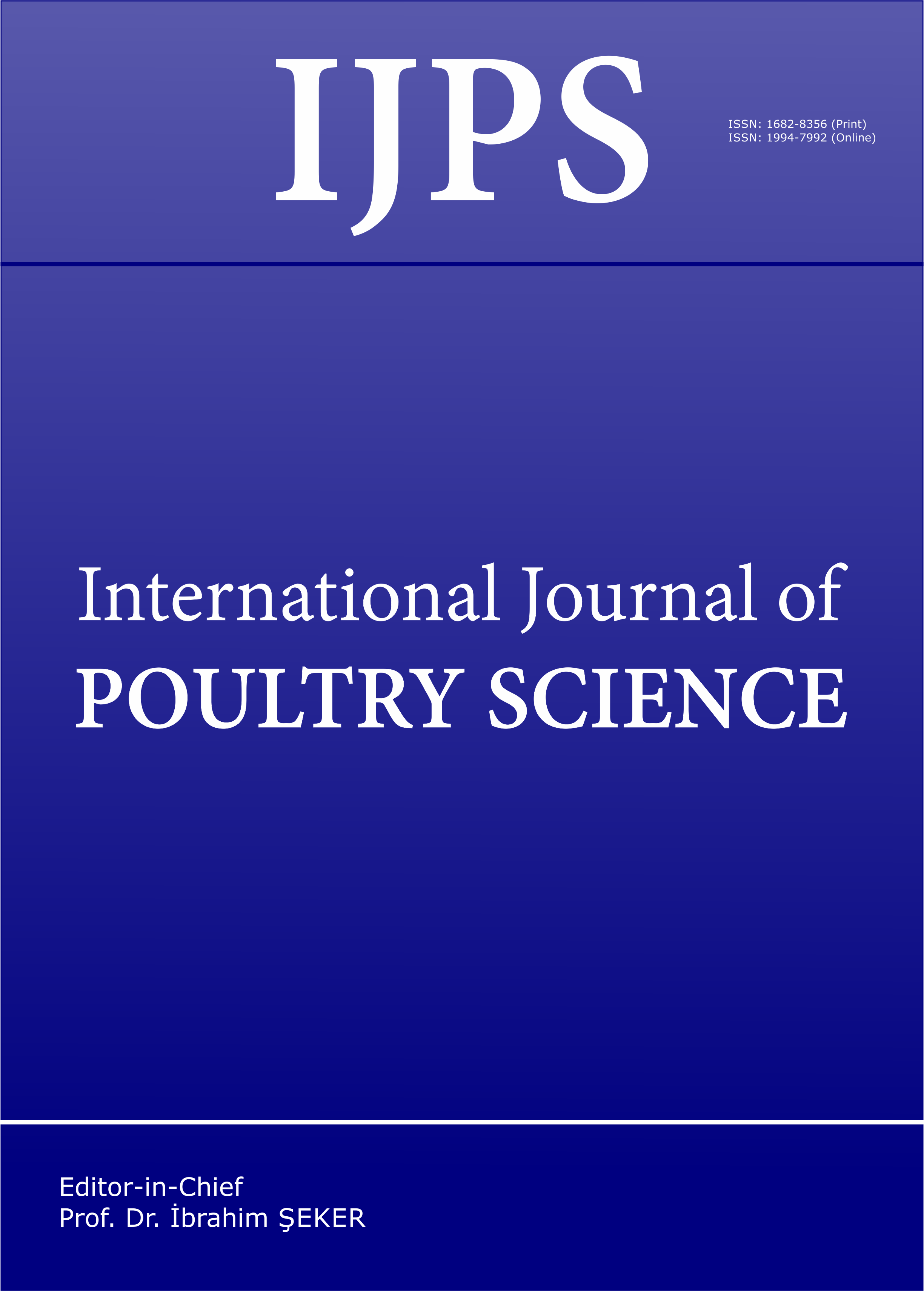Incubator Environment Interacts with Genetic Line of Broiler at the Plateau Stage to Affect Embryo Plasma Thyroxine and Triiodothyronine Concentrations
DOI:
https://doi.org/10.3923/ijps.2006.714.722Keywords:
Plasma, plateau stage, thyroid functionAbstract
We hypothesize that temperature and oxygen in conjunction with genetic lines of broilers regulate embryo thyroid function. Thyroid response of broiler embryos of the two lines was measured at different incubator temperature and oxygen concentrations at the plateau stage in oxygen consumption (days 17 to 20 of embryo development). Each of the lines showed different eggshell conductance (G) values. Eggs of the same weight from the lines of broilers were incubated identically until the 17th day of development. On the 17th day (plateau stage in oxygen consumption), eggs were randomly distributed by line into four incubators operating at 36, 37, 38 or 39oC in trial 1 or at 17, 19, 21 or 23% oxygen in trial 2. At external pipping (the end of the plateau stage in oxygen consumption) as well as at hatching ten embryos or chicks per treatment were sampled for blood plasma. Plasma was analyzed for thyroxine and triiodothyronine concentrations. In trial 3, temperature line of broiler and oxygen treatments were arranged factorially. Increasing temperatures suppressed hormone concentrations in embryos, and the suppression was greater with low G. Increasing oxygen increased hormone concentrations in low G embryos to a greater degree than high G. It can be concluded that incubation temperature suppresses plasma thyroid hormone concentrations in low G lines whereas oxygen increases it.
Downloads
Published
Issue
Section
License
Copyright (c) 2006 Asian Network for Scientific Information

This work is licensed under a Creative Commons Attribution 4.0 International License.
This is an open access article distributed under the terms of the Creative Commons Attribution License, which permits unrestricted use, distribution and reproduction in any medium, provided the original author and source are credited.

